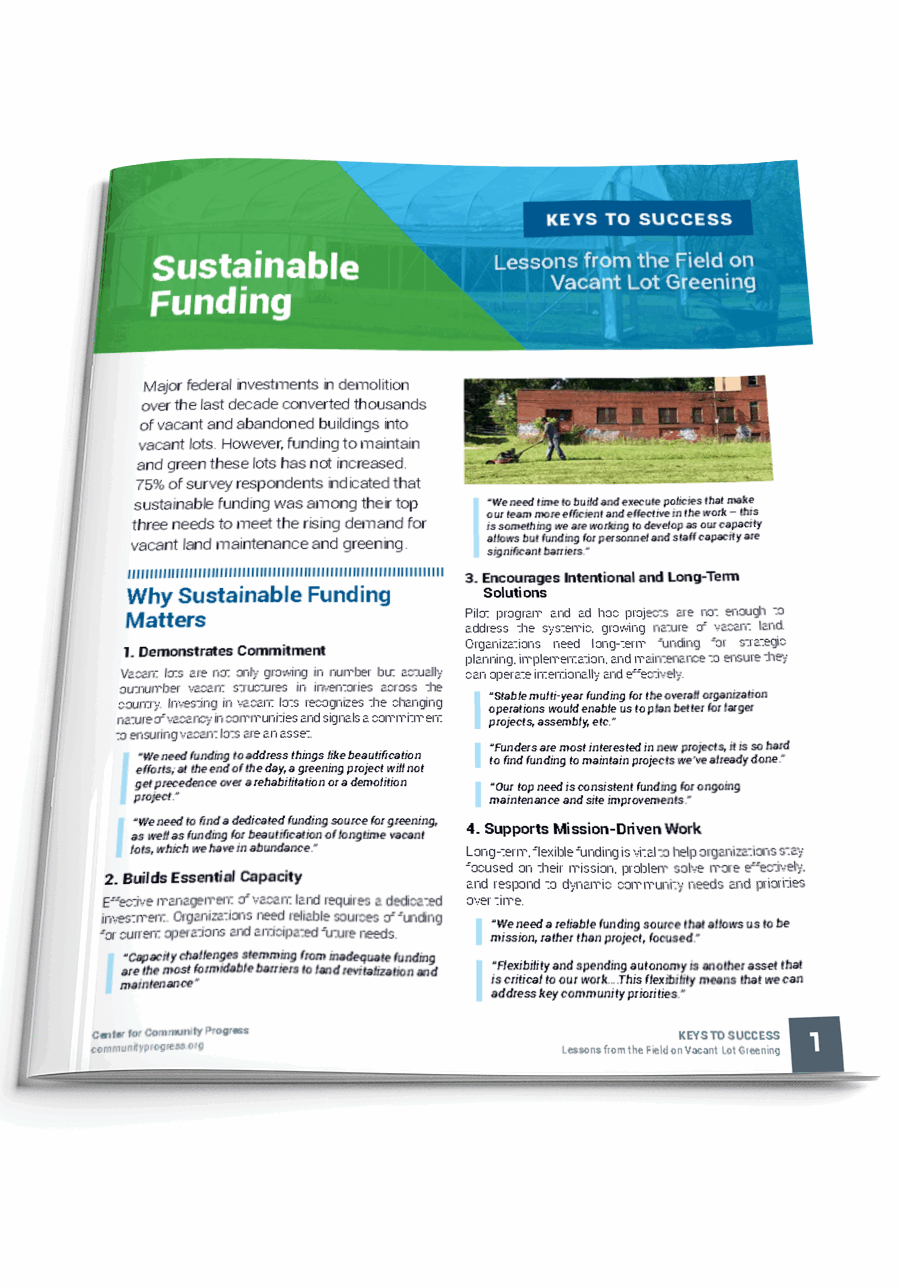Vacant Land Keys to Success: Sustainable Funding
Insights from the National Survey on Greening
Topic(s): Vacant Land Stewardship
Published: March 2021
Geography: Louisiana, Michigan, United States
Author(s): Center for Community Progress, Michigan Youth Violence Prevention Center at the University of Michigan School of Public Health
Over the last decade, the federal government made major investments to demolish thousands of vacant, abandoned, and deteriorated properties, turning them into vacant lots. Unfortunately, there has been no concerted effort to maintain or transform those vacant lots into long-term assets for communities. This is one of the many reasons why sustainable funding is a critical component of vacant land stewardship. Sustainable funding for vacant land stewardship demonstrates commitment to ensuring vacant lots are an asset, builds essential capacity, encourages intentional and long-term solutions, and supports mission-driven work.
“Keys to Success: Sustainable Funding,” is a component of our overall “Keys to Success: Lessons from the Field” guide to greening best practices as a method of reducing youth violence and injury. Keys to Success reports on findings from a six-year research project between the Michigan Youth Violence Prevention Center and the Center for Community Progress to identify the practices that help greening organizations (i.e. community organizations, nonprofits, land banks) meet the rising demand for vacant lot care across the country. This publication is a companion to the “America’s Vacant Lot Landscape: Insights from the National Survey on Greening.”

Topic(s): Vacant Land Stewardship
Published: March 2021
Geography: Louisiana, Michigan, United States
Related Publications
Other Related Content
More content coming soon
Subscribe to join 14,000 community development leaders getting the latest resources from top experts on vacant property revitalization.
